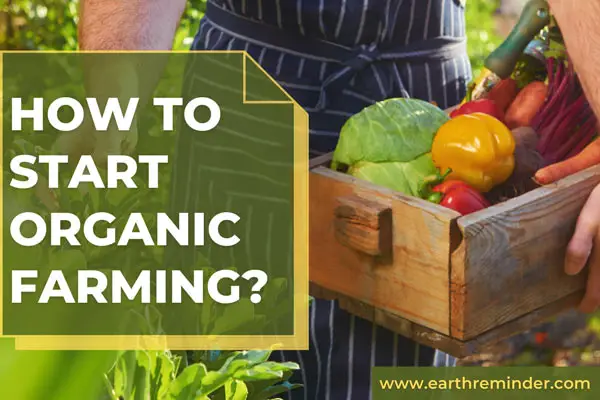
Are you interested in starting your own organic farm? Maybe you’ve heard about the benefits of organic farming and want to give it a try. Well, you’re in the right place! In this article, we’ll dive into the world of organic farming and explore everything you need to know to get started. From the basics of soil preparation to choosing the right crops, we’ll cover it all. So, let’s jump right in!
When it comes to starting an organic farm, the first step is to ensure that your soil is healthy and rich in nutrients. Organic farming relies on a strong foundation of fertile soil, so it’s important to test the pH levels and make any necessary adjustments. Composting is also a key component of organic farming, as it helps replenish the soil with organic matter and beneficial microorganisms. Don’t worry if you’re new to composting – we’ll explain how to get started in our upcoming article.
Once you have your soil ready, it’s time to choose the right crops for your organic farm. The great thing about organic farming is that you have a wide variety of options to choose from. Whether you’re interested in growing vegetables, fruits, or even raising livestock, there are organic methods for every type of farming. Plus, we’ll share some tips on crop rotation and companion planting to help optimize your yields and naturally control pests. Stay tuned for more information on this exciting topic!
Starting your own organic farm may seem like a daunting task, but with the right knowledge and techniques, it’s definitely achievable. In our next article, we’ll delve into the details of soil preparation and composting, as well as provide insights on choosing the perfect organic crops for your farm. So, if you’re ready to embark on this rewarding journey and learn more about organic farming, stick around for more valuable information. Happy farming!
Click Here For The Best Gardening Tools On The Market!
How To Start Organic Farming
Are you interested in starting your own organic farm? Organic farming has gained popularity in recent years due to its numerous benefits, such as environmental sustainability, healthier food options, and economic opportunities. By following a few key steps and understanding the principles of organic farming, you can embark on a rewarding journey towards building a successful organic farm.
Environmental Sustainability
One of the primary benefits of organic farming is its commitment to environmental sustainability. Unlike conventional farming methods that rely heavily on synthetic pesticides, herbicides, and fertilizers, organic farming utilizes natural techniques to promote soil health and biodiversity. By avoiding the use of harmful chemicals, organic farming helps protect water sources, reduce soil erosion, and preserve delicate ecosystems.
Healthier Food Options
Another advantage of organic farming is the production of healthier food options. Organic crops are grown without the use of synthetic pesticides and fertilizers, ensuring that the resulting produce is free from harmful residues. This means that organic fruits, vegetables, and grains are not only safer to eat but also have higher nutrient content. Additionally, organic farming practices prioritize the use of natural methods, such as crop rotation and composting, which further enhance the nutritional value of the produce.
Economic Opportunities
Organic farming also presents numerous economic opportunities. With the increasing demand for organic products, starting an organic farm can be a profitable venture. Farmers can sell their organic crops at premium prices, especially if they obtain organic certification. Additionally, organic farming promotes local and sustainable food systems, which can create jobs and support the local economy. By tapping into the growing organic market, you can contribute to the economic development of your community.
Understanding Organic Farming
Before you dive into organic farming, it is important to gain a thorough understanding of its principles, certification process, and farming methods.
Definition and Principles
Organic farming is an agricultural system that focuses on the use of natural and sustainable methods to cultivate crops and raise livestock. The principles of organic farming include promoting biodiversity, conserving resources, and minimizing the use of synthetic inputs. Additionally, organic farming aims to foster soil health, protect the environment, and prioritize the welfare of animals.
Certification Process
Obtaining organic certification is essential for selling your produce as organic. Certification bodies, such as the United States Department of Agriculture (USDA), set guidelines and standards that farmers must meet to be certified organic. These standards include using organic seeds and inputs, following specific crop rotation practices, and maintaining extensive records of farming activities. It is important to familiarize yourself with the certification process and ensure that your farm meets all the necessary criteria.
Organic Farming Methods
Organic farming employs a variety of methods to maintain soil fertility and control pests and diseases naturally. These methods may include crop rotation, green manure, composting, and integrated pest management. Crop rotation involves planting different crops in sequence to disrupt pest cycles and improve soil health. Green manure, such as cover crops, is grown and then turned into the soil to provide additional nutrients. Composting is the process of decomposing organic matter to create nutrient-rich compost. Integrated pest management involves using a combination of cultural, physical, and biological pest control methods to manage pests without the use of synthetic chemicals.
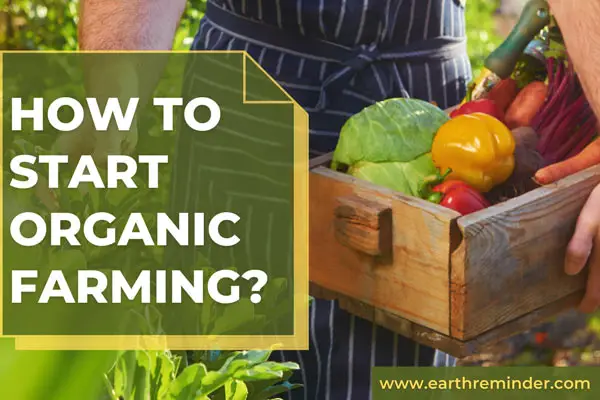
Click Here For The Best Gardening Tools On The Market!
Planning Your Organic Farm
Once you have a good understanding of organic farming principles and methods, you can start planning your organic farm.
Choosing the Right Location
Selecting the right location for your organic farm is crucial for its success. Consider factors such as climate, soil type, access to water, and proximity to markets. Aim for a location that provides favorable growing conditions for your chosen crops and is convenient for customers to reach. Additionally, ensure that the land has not been previously exposed to chemicals or pollutants that could potentially impact organic certification.
Assessing Soil Quality
Conduct a thorough assessment of your soil quality to determine its fertility and nutrient content. This can be done by testing the soil pH, nutrient levels, and organic matter content. Understanding your soil’s characteristics will help you make informed decisions about the types of crops to grow and the appropriate organic amendments to apply. It may be necessary to improve soil fertility through methods such as composting, green manure, and natural soil amendments.
Deciding on Farm Size
Determine the size of your organic farm based on the resources available to you and the market demand. It is advisable to start small and gradually expand as you gain experience and establish a customer base. Starting small allows you to manage the farm efficiently and minimize financial risks. Consider your personal capabilities and the amount of time and labor you can commit to the farm. Remember, even a small organic farm can be highly productive and profitable.
Organic Crop Selection
Choosing the right crops to grow on your organic farm is essential for success. Consider the following factors when selecting organic crops.
Researching Organic Crops
Thoroughly research different organic crops that are suitable for your region and growing conditions. Consider their nutritional requirements, resistance to pests and diseases, market demand, and profitability. Look for crops that are well-suited to organic farming practices and have a high potential for sale in your local market or through direct marketing channels.
Consideration of Market Demand
Identify the market demand for organic crops in your area. Conduct market research and engage with potential customers to understand their preferences and needs. Find out if there are any gaps in the local organic market that you can fill with your specific crops. Additionally, consider diversifying your crop selection to cater to different customer preferences and reduce the risk of relying on a single crop.
Crop Rotation and Planning
Implementing a crop rotation plan is crucial for maintaining soil health and preventing the buildup of pests and diseases. Crop rotation involves growing different crops in a specific sequence on the same piece of land. This practice helps control pests, improves soil fertility, and reduces the risk of crop-specific diseases. Plan your crop rotation based on the specific needs of your chosen crops and consult with experts or local agricultural extension offices for guidance.
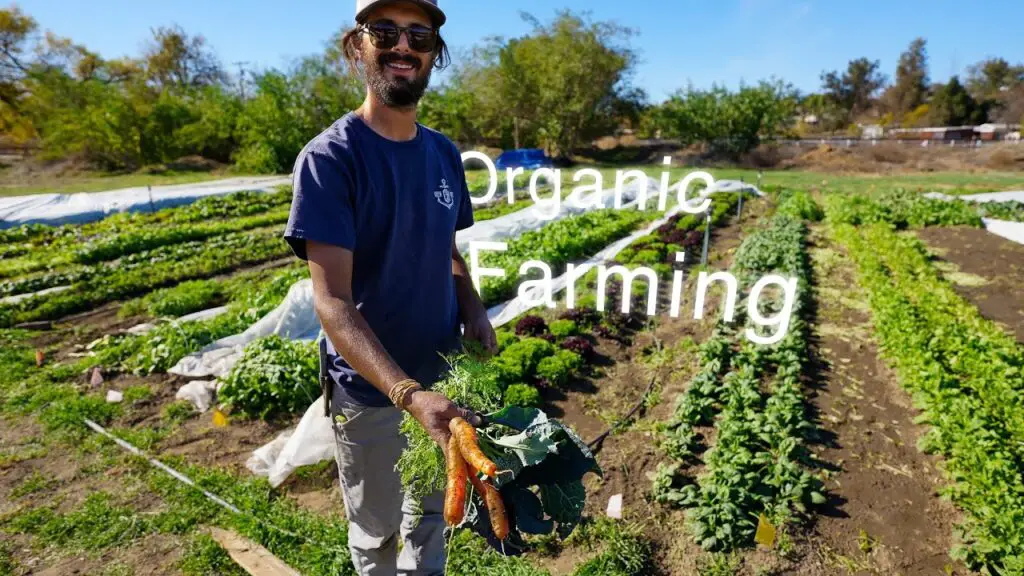
Organic Pest and Weed Management
Controlling pests and weeds organically is an essential aspect of organic farming. Implementing effective pest and weed management strategies will help ensure the health and productivity of your crops.
Integrated Pest Management
Integrated pest management (IPM) involves using a combination of cultural, physical, and biological control methods to manage pests naturally. These methods include crop rotation, planting pest-resistant varieties, attracting beneficial insects, using insect traps, and practicing proper sanitation. It is important to regularly monitor your crops for signs of pest infestation and take appropriate action to control the pests without resorting to synthetic chemicals.
Natural Weed Control Methods
Weed control in organic farming relies on natural and mechanical methods rather than synthetic herbicides. Consider strategies such as mulching, hand weeding, hoeing, and flame weeding to manage weeds effectively. Mulching involves covering the soil around your plants with organic materials, such as straw or bark chips, to suppress weed growth. Hand weeding and hoeing can be labor-intensive but are effective methods for removing weeds manually. Flame weeding involves using controlled flames to kill weeds; however, caution must be exercised to prevent accidental fires.
Companion Planting
Companion planting is a technique that involves growing certain plants together to enhance the health and productivity of the crop. Some plants have natural repellent properties against pests or attract beneficial insects that control pests. Research companion plants that are suitable for your crops and implement companion planting strategies to naturally manage pests and promote a balanced ecosystem in your organic farm.
Organic Fertilizers and Soil Amendments
Fertilizers and soil amendments play a vital role in organic farming to maintain soil fertility and provide essential nutrients to crops.
Composting and Vermicomposting
Composting is the process of decomposing organic materials, such as kitchen scraps, yard waste, and animal manure, into nutrient-rich compost. Compost adds valuable organic matter to the soil, improves soil structure, and releases nutrients slowly over time. Vermicomposting, on the other hand, involves using earthworms to break down organic matter, resulting in nutrient-rich worm castings. Both composting and vermicomposting are effective methods to produce natural fertilizers for your organic farm.
Cover Crops and Green Manure
Cover crops are grown specifically to protect and improve the soil when a field is not in use for primary crop production. Cover crops prevent soil erosion, increase organic matter content, suppress weeds, and improve soil structure. They can also be incorporated into the soil as green manure, providing nutrients and organic matter to the soil. Research cover crop options suitable for your region and incorporate them into your crop rotation plan to enhance soil fertility and reduce the need for external inputs.
Natural Soil Amendments
In addition to compost and cover crops, there are various natural soil amendments that can be used to improve soil fertility. Examples include natural mineral supplements like rock phosphate and potassium sulfate, as well as animal-based amendments like bone meal and feather meal. Consult soil test results and consider the specific nutrient requirements of your crops when selecting and applying natural soil amendments.
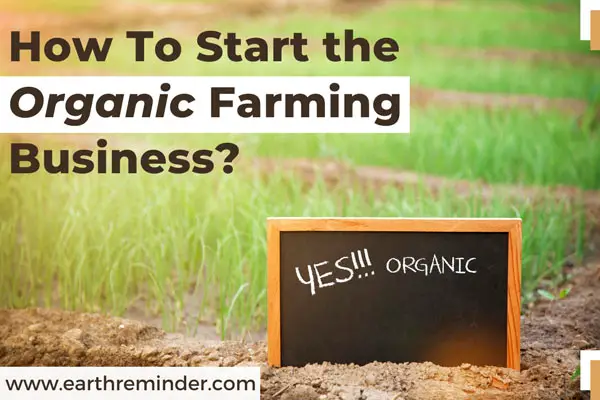
Irrigation and Water Management
Efficient irrigation and water management are crucial for a successful organic farm, especially in regions with limited water resources.
Water Conservation Techniques
Implement water conservation techniques to optimize water usage on your organic farm. These techniques may include mulching to reduce evaporation, drip irrigation to deliver water directly to plant roots, and using rainwater harvesting systems to capture and store rainfall. Regularly monitor soil moisture levels and water your crops only when necessary to avoid water waste and ensure efficient water use.
Drip Irrigation Systems
Drip irrigation is a highly efficient irrigation method that delivers water directly to the plant’s root zone. It minimizes water loss through evaporation and reduces the risk of disease by keeping foliage dry. Drip irrigation systems can be set up using various components, such as drip tapes, emitters, and timers. Invest in a well-designed drip irrigation system that suits the specific needs of your crops and soil conditions.
Rainwater Harvesting
Rainwater harvesting involves collecting and storing rainwater for future use. This technique is particularly useful in areas with limited rainfall or unreliable water sources. Install rainwater harvesting systems, such as rain barrels or larger collection tanks, to capture rainwater from roofs or other surfaces. Use the collected rainwater for irrigation during dry periods, reducing reliance on municipal water supplies or groundwater sources.
Organic Livestock and Animal Husbandry
If you are considering incorporating livestock into your organic farm, it is important to understand the regulations and principles of organic livestock production.
Organic Livestock Regulations
Organic livestock production follows specific regulations and standards to ensure animal welfare and health. Livestock must have access to outdoor areas for exercise and grazing, and their diet must be organic, consisting of pasture and organically produced feed. Antibiotics and growth hormones are prohibited, and animals must be treated with care and respect. Familiarize yourself with the organic livestock regulations and ensure that you meet all the requirements for organic certification.
Grazing and Pasture Management
If you choose to raise livestock on your organic farm, proper grazing and pasture management are essential. Organic livestock should have access to open pasture that provides them with a diverse and balanced diet. Practice rotational grazing, where animals are moved to different grazing areas periodically, to prevent overgrazing and maintain healthy pasture. Monitor the quality of pasture to meet the nutritional needs of your livestock and ensure their overall well-being.
Animal Welfare Standards
Organic farming places a strong emphasis on animal welfare. Livestock should be provided with clean and comfortable living conditions, access to fresh water, and protection from predators and extreme weather conditions. Proper animal handling techniques should be followed, and stress-free conditions should be maintained to promote the health and happiness of the animals.
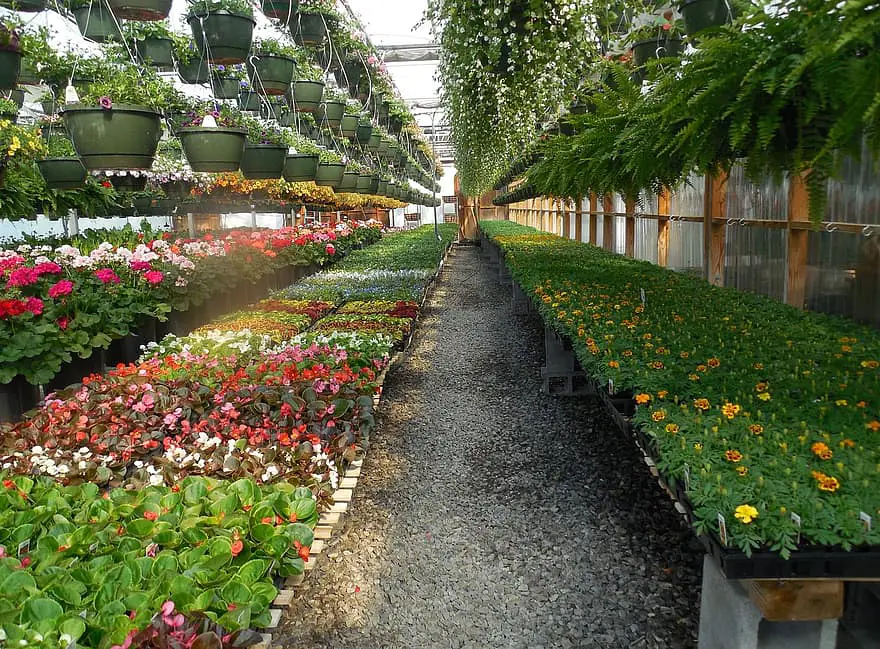
Marketing and Selling Organic Products
Successfully marketing and selling your organic products is essential for the profitability and sustainability of your organic farm.
Identifying Target Market
Identify your target market for organic products and tailor your marketing efforts accordingly. Determine whether you will sell directly to consumers through farmers’ markets, community-supported agriculture (CSA) programs, or online platforms, or if you will supply to local grocery stores, restaurants, or other businesses. Understand the preferences and demands of your target market and position your organic products accordingly to maximize sales.
Creating a Marketing Strategy
Develop a comprehensive marketing strategy to promote your organic farm and products. Utilize various channels such as social media, website, local print media, and community events to reach your target audience. Highlight the benefits of organic farming, the quality of your produce, and your commitment to sustainable agriculture. Consider highlighting your organic certification to build trust and credibility with potential customers.
Certification and Labeling
Obtaining organic certification is crucial for marketing and selling your organic products. Display the organic certification logo on your packaging, labels, and marketing materials to communicate to customers that your products are truly organic. Additionally, clearly label your products with accurate information regarding their organic status, ingredients, and any other relevant certifications.
Conclusion
Starting an organic farm can be a fulfilling and rewarding undertaking. By embracing sustainable agriculture practices, you contribute to environmental sustainability, provide healthier food options, and tap into economic opportunities. Understanding the principles of organic farming, carefully planning your farm, selecting appropriate crops, managing pests and weeds organically, and implementing efficient irrigation and livestock practices are vital for building a successful organic farm. With dedication, hard work, and a commitment to organic principles, you can embark on a journey that not only benefits you but also contributes to the health of our planet and our communities. Happy farming!
Please note that the information provided in this article is based on general organic farming practices and regulations. It is always recommended to consult local agricultural authorities, organic certifying agencies, and experienced farmers in your region for specific guidance and advice when starting your own organic farm.

